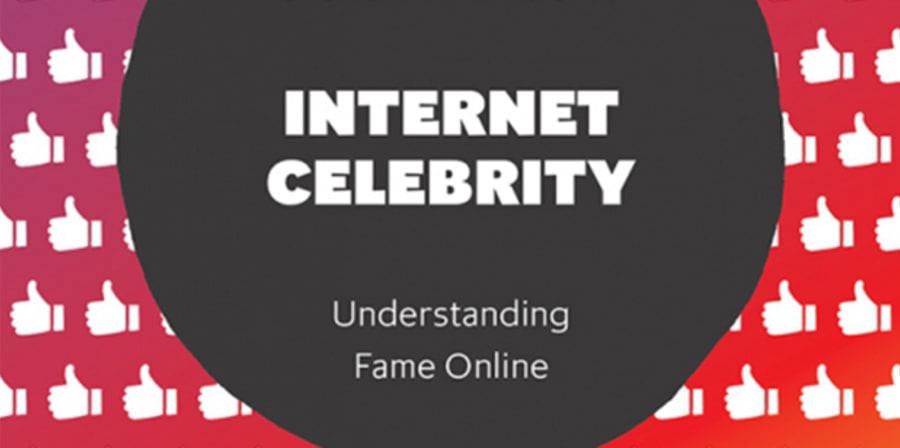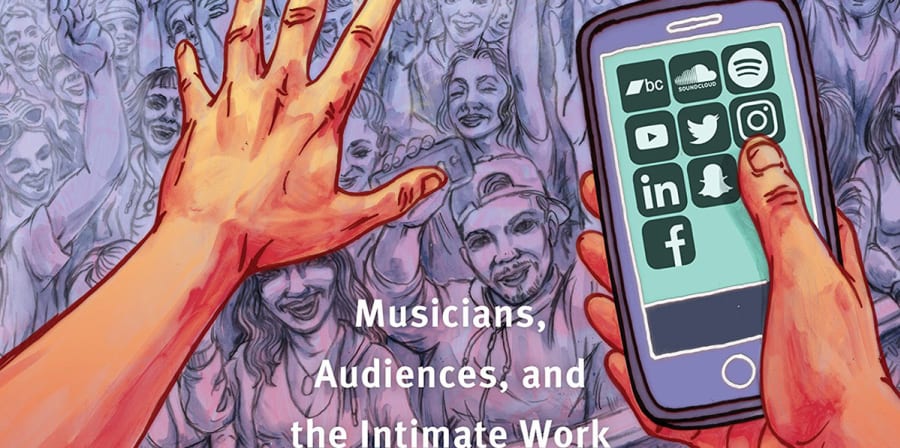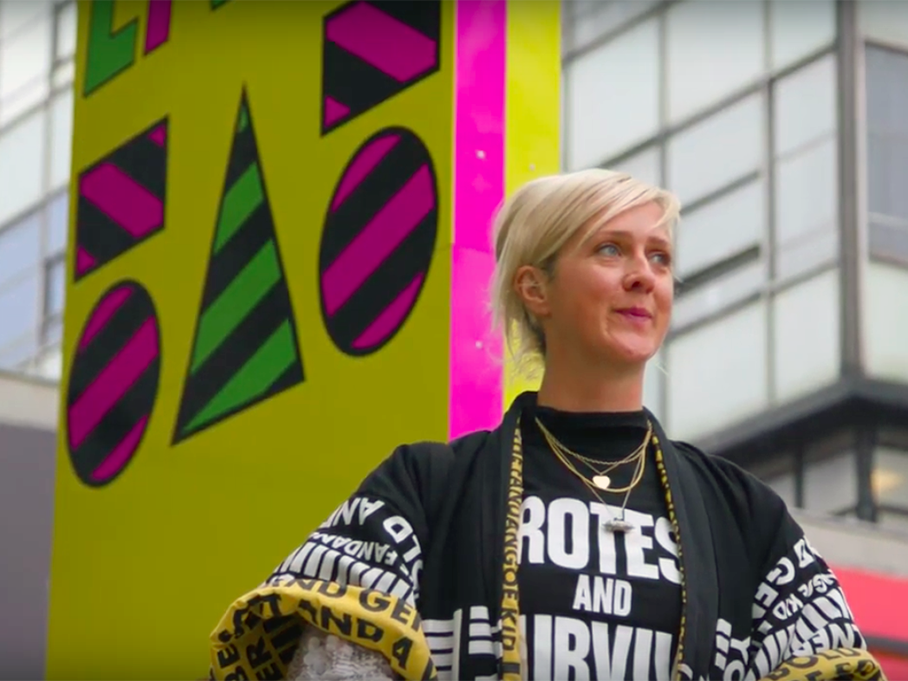The LCC community may be teaching, learning and working remotely at the moment, but we know that everyone remains as curious, brave and committed as ever.
We’ve been using our social channels to help you stay connected, stay inspired and stay creative by showcasing stellar student work, dipping back into our archives, and hosting Instagram Lives with LCC’s experts, graduates and friends.
Recently, we chatted to Dr Zoetanya Sujon about the ways social technologies shape our lives, as well as emerging themes in her upcoming book, The Social Media Age: Power and Participation in a Connected World.
In our first Bookshelf feature, Dr Sujon suggests her favourite works for anyone interested in exploring digital culture.

1. On technology, feminism and knowledge: Donna Haraway and Judy Wajcman
Donna Haraway is a Distinguished Professor Emerita in the History of Consciousness and Feminist Studies Departments at the University of California, Santa Cruz. In her spare time, she’s also a prolific author and leading feminist thinker who takes on the philosophy of knowledge, often through science.
Haraway challenges the idea that the body, the machine, and science are embedded in a fixed and objective system. Instead, she argues that all of these things are hybrids made up of social relations and systems of power. Her ideas have popularised studies of science and technology, and have also paved the way for feminist thinkers to challenge the so-called 'objectivity' of science and neutrality of technology.
Her two most influential works in my own thinking include:
- A Cyborg Manifesto (1985)
- Situated Knowledges (1988)

Judy Wajcman is the Anthony Giddens Professor of Sociology at the London School of Economics, as well as a Turing Fellow at the Alan Turing Institute.
Along with Donald MacKenzie, Wajcman has been instrumental in developing the social constructionist view of technology. By unpacking the complexities of technological development, this view focuses on the ways in which social systems, power hierarchies and moral values shape the development of specific technologies. It also explores broader understandings of technologies as value-free and deeply linked to both human evolution and social progress.
For me, Wajcman provided a key foundation for making sense of how technology and everyday life interconnect. Some of her key works include:
- With Donald MacKenzie:The social shaping of technology: how the refrigerator got its hum (1985)
- Feminism Confronts Technology (1991)

2. On internet celebrity, personal connection and selfies: Crystal Abidin and Nancy Baym
Crystal Abidin is one of the leading scholars in South East Asian influencers, defining the field of study as well as providing useful and key insights into a new industry as it unfolds. We were lucky for her to speak at LCC in 2018 under my invitation, and I often refer to her works for the latest insights on internet celebrity, Instagram, and social media influencers.
Dr Abidin has forthcoming work on Tumblr, the body and mediation. In addition to her impressive intellectual prowess, Dr Abidin is also warm and approachable, always encouraging junior thinkers to pursue their ideas and their work. Truly an inspiration.
Her key works include:
- Internet Celebrity: Understanding Fame Online (2018)
- With Megan Lindsay Brown: Microcelebrity Around the Globe: Approaches to cultures of internet fame (2018)
- 'Visibility labour: Engaging with Influencers’ fashion brands and #OOTD advertorial campaigns on Instagram' in Media International Australia (2016)
- 'Aren’t these just young, rich women doing vain things online?: Influencer selfies as subversive frivolity.' in Social Media + Society 2.2 (2016)
- 'Communicative ❤ Intimacies: Influencers and Perceived Interconnectedness.' in Ada: A Journal of Gender, New Media, & Technology 8 (2015)

Nancy Baym is a Senior Principal Researcher at Microsoft Research, a collective which is home to many influential and inspiring internet researchers such as Mary L. Gray and Tarleton Gillespie.
Baym co-founded the Association of Internet Researchers, an international network of scholars who explore the internet, digital life and networked technologies. She’s led the field in terms of digitally-mediated interpersonal relations, authoring key works on digital methods and ways to research social relations, as well as core texts on mediated personal connection.
Some of her key works include:
- Personal Connections in the Digital Age (2014)
- Connect With Your Audience! The Relational Labor of Connection in The Communication Review (2015)
- Playing to the Crowd: Musicians, Audiences, and the Intimate Work of Connection (2018)
- With Teresa Senft: What Does the Selfie Say? Investigating a Global Phenomenon in International Journal of Communication 9 (2015)

3. On race and technology: Ruha Benjamin, Safiyah Umoja Noble and André Brock
There’s currently a movement - perhaps even a reinvigoration - of critical race studies and technology. Lisa Nakamura and many authors in the STS (Science and Technology Studies) and ANT (Actor-Network Theory) traditions made headway in the 1990s and early 2000s, but now, many important critiques of the ways institutional and systemic racism are expressed across the internet and social media are being published.
The ones that have been most influential on my thinking and are, I think, essential readings that make fundamental contributions in this area include:
- Ruha Benjamin: Race After Technology: Abolitionist Tools for the New Jim Code (2019)
- Ruha Benjamin: Captivating Technology: Race, Carceral Technoscience, and Liberatory Imagination in Everyday Life (2019)
- Safiyah Umoja Noble: Algorithms of Oppression: How Search Engines Reinforce Racism (2018)
- André Brock: Distributed Blackness: African American Cybercultures (2020)

4. On algorithms, platforms, surveillance capitalism and data colonialism
There’s a lot of work being done in this area, so much that I’d like to point to my favourite authors - the ones who I think are making the most important contributions to understanding our contemporary social condition as shaped by growing platforms and, broadly, what we would refer to as a concerted set of technologies involved in the digital mediation of social and economic life.
These are all books I have on my desk at the moment, and are those I make regular references to in my thinking about platform society, social media and the 21st century:
* Nick Couldry, and Ulises Mejias: The Costs of Connection: How Data is Colonizing Human Life and Appropriating it for Capitalism (2019)
This book, and the concept of data colonialism, is one of the most important works outlining the connection between the 'social quantification sector' (as led by social media companies) and the commodification of everyday human life. It's an essential work that's important to anyone interested in social media, digital culture, and social change, and its gist can be picked up in a 2019 article in Television and New Media.
* Shoshana Zuboff: The Age of Surveillance Capitalism: The Fight for a Human Future at the New Frontier of Power (2019)
Taking the world by storm, Zuboff's careful and incredibly thorough analysis of American culture and the Silicon giants outlines a shift towards a new era of capitalism - 'surveillance capitalism' - where every click is monitored, tracked and embedded within increasingly global surveillance infrastructures. Although more limited to the US than some other works, this is a critical read for anyone interested in social media, popular culture and capitalism.

* José Van Dijck, Thomas Poell, and Martijn De Waal: The Platform Society: Public Values in a Connective World (2018)
Building upon critiques of 'the ideology of connection' found across social media, this book addresses the role of platforms in reshaping society, markets, and labour. It's a thought-provoking and key work which challenges the gap between platform impact and public values, posing new solutions for the impact of platformization on social change. The authors are well-established and have long publication records on similar topics worth reading.
* Taina Bucher: If...Then: Algorithmic Power and Politics (2018)
In this book, Bucher targets the relationship between social relations and algorithmic culture. Focusing on the role of algorithms in social media and digital culture, she offers one of the clearest analyses of the ways algorithms shape social experience through 'programmed sociality'. Bucher not only updates the interpretation of Foucault's work on discipline, but also explores the invisibility of algorithms in social life - a real must-read.
Related links:
- Find out more about Dr Sujon's work.
- Explore LCC's Media School.
- Check out the official LCC Instagram.





